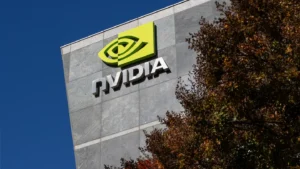Meta Releases Earnings Report; AI Investment May Soar to $50 Billion

Meta’s Pivot from the Metaverse to AI Investments
Overview of AI Focus
Meta, known as a leader in social media, is currently redirecting its attention from ambitious metaverse projects to ramping up its investments in artificial intelligence (AI). Analyst Doug Anmuth from JPMorgan forecasts that Meta’s overall spending might reach as high as $50 billion by 2025, primarily driven by its focus on AI technology.
Financial Expectations and Earnings Report
Meta is expected to shed light on its spending for both AI and metaverse ventures during its quarterly earnings announcement. Experts believe that Meta could benefit from new AI features amidst a prosperous digital advertising landscape, particularly influenced by the upcoming U.S. presidential election. However, analysts are also cautious; if Meta reveals higher-than-expected AI expenditures, it might impact the company’s stock price negatively, akin to recent trends observed with Google and Tesla.
Increased Spending on AI
Anmuth highlights that investors are aware of the potential for Meta’s AI costs to rise further. For instance, predictions suggest that the company’s capital expenditures might soar to $9.5 billion in the second quarter of this year, nearly a 50% increase compared to the first quarter. Additionally, spending for 2024 is anticipated to fall between $35 billion and $40 billion, with projections indicating a rise to $42 billion the following year. Anmuth’s estimates for 2025 suggest costs might surpass $50 billion, pointing to a significant investment in AI development.
Industry Trends and Wall Street Concerns
The broader tech industry is under scrutiny as companies like Google and Tesla report similar increases in AI spending, which has contributed to fluctuations in the Nasdaq index. Investors remain skeptical about the timing of returns on these massive expenditures. Google, for example, is expected to see a 51% increase in its spending, bringing it close to $50 billion in 2024.
Zuckerberg’s Vision for AI
Meta’s CEO, Mark Zuckerberg, is optimistic about the returns from the company’s AI investments. He believes that the newly launched Llama 3.1 AI model could become the most widely used in the industry by the end of 2024. Zuckerberg is willing to invest heavily, even if it means exceeding budget forecasts. He stated in a recent interview that while there is a chance that tech companies might be over-investing, the competitive nature of AI development necessitates significant spending. Companies risk falling behind if they do not invest in what he describes as a critical technology for the next decade or more.
Distinct Nature of AI Investments
Wedbush analyst Dan Ives asserts that Meta’s current focus on AI differs significantly from its previous spending on the metaverse. He describes the present situation as an "AI arms race," where companies globally are striving to build robust AI systems for both enterprise and consumer applications. Ives urges that the current investments reflect a rational decision-making process in the face of intense competition in AI development.
Regulatory Challenges
Despite these advancements, Meta is encountering regulatory challenges, particularly in regions such as Brazil and the EU. The company has paused some of its generative AI tools in response to growing scrutiny regarding its data practices. Brazil, for instance, has suspended Meta’s ability to use personal data for training its AI models.
Stock Performance and Future Outlook
Despite concerns about AI spending, both JPMorgan and Bank of America have maintained a positive outlook on Meta’s stock. Over the past five years, Meta’s shares have appreciated by nearly 135%. Recent numbers indicate that the stock is up 44% year-over-year, despite some volatility. The stock experienced a 12% drop following its first-quarter earnings report but demonstrated recovery in subsequent months.
In summary, Meta’s strategic pivot towards AI signifies an adaptive response to market demands, illustrating the influential role of AI in shaping the future landscape of technology and business.





